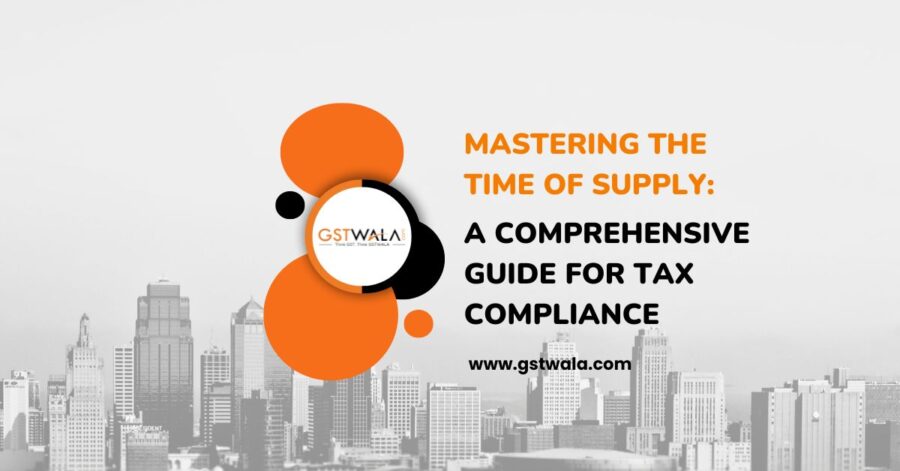
Mastering the Time of Supply: A Comprehensive Guide for Tax Compliance
In the multifaceted realm of taxation, grasping the intricacies of the Time of Supply (TOS) concept emerges as a fundamental pillar upon which the edifice of fiscal responsibility rests. As the linchpin for ascertaining tax liabilities pertaining to both goods and services, TOS assumes a position of paramount importance, wielding considerable influence over the accuracy of revenue assessment. This article endeavors to furnish a meticulous examination of TOS from the perspective of revenue management, traversing through the labyrinthine corridors of relevant provisions enshrined within the GST Act while elucidating its nuances through illustrative examples for enhanced comprehension.
At its core, TOS signifies the precise moment when a taxable supply is deemed to have occurred, thereby triggering the obligation to account for the associated tax liability. Its significance lies in its ability to delineate the temporal boundary within which taxable events transpire, providing tax authorities with a definitive framework for revenue estimation and collection.
Relevance and Overview of Time of Supply
Understanding TOS is crucial for calculating and discharging tax liabilities accurately. Any misstep in assessing TOS can result in revenue loss for the government. TOS is defined as the moment when the charging event occurs, triggering the tax liability. It is regulated by separate provisions for goods and services under the GST Act.
Provisions Related to Invoice for Goods and Services
The issuance of invoices holds significant importance in determining TOS. For goods, Section 31(1) mandates the issuance of tax invoices before or at the time of delivery, while Section 31(2) and Rule 47 outline similar requirements for services. Continuous supplies of goods and services have specific invoicing rules outlined in Section 31(4) and Section 31(5) respectively.
Time of Supply for Goods and Services
Under the forward charge mechanism, the liability to pay tax on goods or services arises at the time of supply. Section 12(1) and Section 13(1) of the GST Act specify the criteria for determining TOS for goods and services respectively. Additionally, provisions for determining TOS in cases of vouchers, residual scenarios, and receipt of additional amounts are outlined in Section 12(4)-(6) and Section 13(4)-(6).
Time of Supply under Reverse Charge Mechanism
For supplies under the reverse charge mechanism, TOS is determined based on the earliest of specified dates, such as the date of receipt of goods, date of payment, or a fixed timeline from the date of issue of the invoice. Provisions for associated enterprises and illustrative examples help clarify TOS under reverse charge mechanism.
Determination of Time of Supply in Case of Tax Rate Changes
Section 14 of the GST Act outlines provisions for determining TOS in cases of changes in the tax rate for goods or services. It specifies the timeline for assessing TOS based on the issuance of invoices and receipt of payments before or after the change in tax rate.
Illustrative Examples
Illustrative examples provide practical insights into determining TOS in various scenarios, such as supplies before and after tax rate changes, continuous supplies, and receipt of advance payments.
In the realm of taxation, where precision and adherence to regulatory frameworks are paramount, the mastery of the Time of Supply (TOS) concept stands as an indispensable cornerstone for businesses seeking to maintain seamless tax compliance. Embedded within the intricate tapestry of the Goods and Services Tax (GST) Act, the principles governing TOS serve as guiding beacons, illuminating the path towards accurate assessment of tax liabilities and mitigation of potential risks associated with interest and penalty charges.
At its essence, TOS delineates the pivotal moment at which a taxable supply is deemed to have occurred, thereby triggering the obligation for businesses to account for the corresponding tax liabilities. By meticulously adhering to the provisions enshrined within the GST Act, businesses can navigate the labyrinth of TOS with confidence, ensuring that their tax obligations are fulfilled in a timely and precise manner.
Stay ahead of the curve with gstwala.com; Together,
let’s simplify GST for a smoother business journey.
We are just a click away info@gstwala.com
